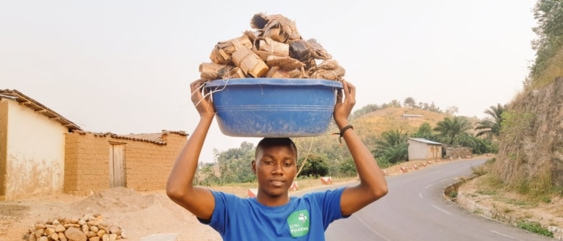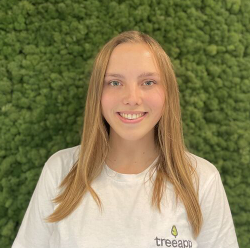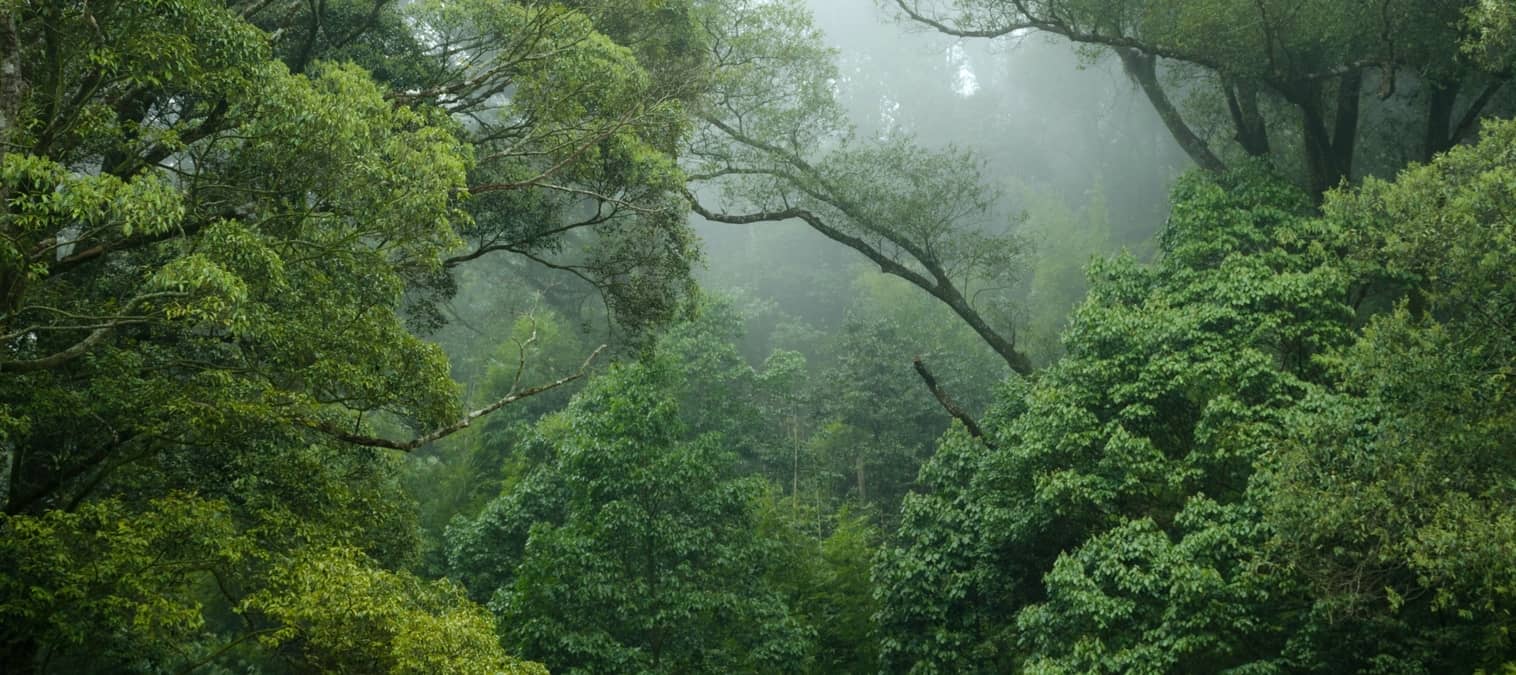Treeapp Partners with a Local NGO
Treeapp is inviting you to discover its newest partnership with the NGO Greening Burundi, a local planting organisation implementing sustainable reforestation methods across its provinces.
From 25th August 2020, Treeapp users can plant a tree every day in Burundi, located on the equatorial highlands of east-central Africa.
Supporting Burundi
This is our third partnership with an organisation in east-central Africa, a region where tree planting has become a growing movement to reverse the trend of deforestation. The project empowers local communities to cultivate food crops, regrow forest and to teach sustainable forestry practices. This is vital as Burundi’s terrain is hilly, making long-lasting reforestation a challenging task. In addition, over the past 60 years the country has experienced rising temperatures and longer dry seasons as a consequence of climate change. As a result, adverse effects of prolonged drought have made much of Burundi’s soils dry and unfertile. In contrast, during the rainy season in Burundi, farms are exposed to flash floods and landslides, given that the country’s extreme topography is characterised by dips and slopes.
Foliage significantly stems the effect of heavy rains and the sliding of soils. The most effective vegetation cover has been shown to be forests, followed by long strips of grassland which also readily absorb rainfall (1). Consequently, “Greening Burundi” is committed to regrow the lost forests of its nation and moreover, to safeguard and increase local crop production.
Towards a Greener Future
The NGO “Greening Burundi” is led by Emmanuel Niyoyabikoze. Emmanuel started planting trees in 2017 following the motto: “we are young, united, motivated and convinced to fight against climate change and its impacts in order to save our planet”. Three years later the young entrepreneur is setting up tree nurseries dedicated to hold 1,000,000 seedlings. These young trees will be planted in various provinces including Musigati, Nyamugerera and Cibitoke. Tree nurseries facilitate the growing of small trees and help to increase tree survivability. Young seedlings (see picture below) are watered in sheltered areas which often are roofed in order to prevent strong rains, winds and animals from killing the young plants.
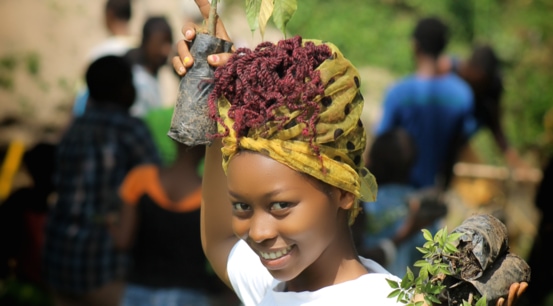
Photo: Local worker carrying trees from the tree nurseries in Bubanza and Cibitoke
Local Solutions & Innovative Practices
Greening Burundi employs various reforestation practices in different provinces, planting species to satisfy local needs. In areas where Burundi’s lower mountain forests have been cut down over decades, the NGO plants pine trees which are suitable for erosion control as their roots hold soil in place and the numerous pine needles soften the impact of rain and flash floods. In areas where farms and towns are threatened by overflowing rivers, Greening Burundi plants native bamboo species which stabilise the river banks. Bamboo also requires little to no maintenance as the species can be grown without irrigation and the use of pesticides.

Innovation does not fall short with this NGO. Instead of using chemical fertiliser for soils, Greening Burundi makes “Biochar” from waste. Biochar is similar to charcoal, although it safely stores carbon rather than releasing it. As a result, Biochar aids carbon sequestration which is the removal of carbon from the atmosphere. This in turn prevents the earth from warming. The NGO makes the fertiliser themselves using an oven and existing agricultural and forestry waste.
Greening Burundi also uses biodegradable bags to grow seedlings in tree nurseries. Fighting against single-use plastic has made the founder Emmanuel search for more sustainable alternatives. Biodegradable bags made from banana peels effectively eliminate plastic in several sites (see picture below). His team works hard in order to create these bags for the many seedlings they are looking to plant in the future.

Photo: Founder of Greening Burundi Emmanuel Niyoyabikoze carrying biodegradable seedling bags
Bringing Joy to the Community
Greening Burundi has also launched a Green Thursday environmental workshop programme that is directed towards adults and students alike. Community empowerment is encouraged through environmental education and by sharing information on climate issues with various local actors (neighbourhood chief, catechists, authorities etc.). By doing so, Greening Burundi is preparing the next generation to understand the impact of reforestation measures on the local climate, subsistence farming as well as on alleviating poverty.
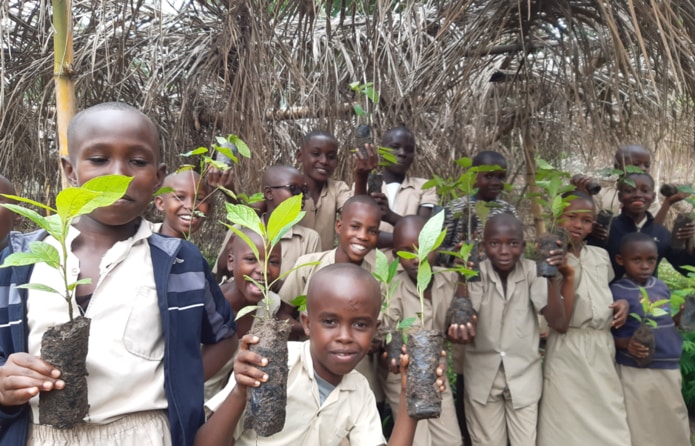
Photo: Children enjoying the reforestation program dedicated to schools
Treeapp will be working closely with Greening Burundi in order to support their planting mission. Are you excited to join the reforestation movement in Burundi? Support the planting efforts and download Treeapp to start planting today!
(1) El-Hassanin, A. S., Labib, T. M., & Gaber, E. I. (1993). Effect of vegetation cover and land slope on runoff and soil losses from the watersheds of Burundi. Agriculture, ecosystems & environment, 43(3-4), 301-308.
